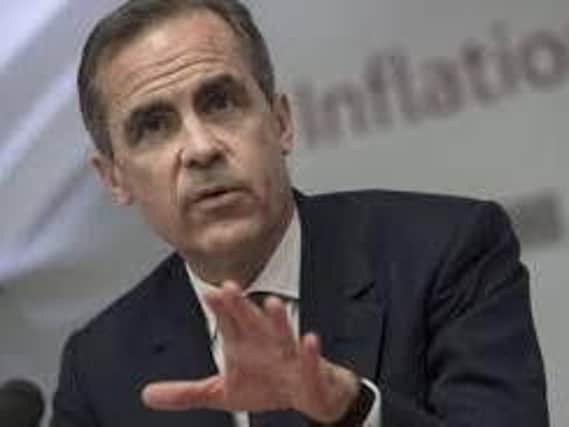Bank needs to halt QE policy immediately


Whilst there is plenty of evidence to suggest that the inflation that is starting to appear is predictable and entirely expected following the depreciation of sterling, the inescapable fact is that the numbers are coming through with a six month lag from the Brexit vote.
The MPC should be sitting upright and asking themselves whether their interest rate policy is aligned with what lies ahead. The current Quantitative Easing programme feels seriously out of kilter with inflation expectations and the outlook for GDP. The Gilt yield curve is predicting interest rates will remain subdued but increasingly the on-going QE programme feels inappropriate. The caveat to this would be a view that the UK economy is about to suffer significantly from the spike in inflation and the uncertainty of Brexit, which has of course been a key bone of contention with the Bank of England’s pre-Brexit vote announcements.
Advertisement
Hide AdAdvertisement
Hide AdMark Carney chose to politicise the Bank by joining the pre-Brexit prophets of doom and now, for the sake of preserving credibility, is possibly continuing to print money for longer than necessary because to do otherwise would be mea culpa. Of course, he has previously said, that without the post-Brexit interest rate cut and renewed QE programme, the UK economy would surely have foundered, even though previous QE injections have done little to encourage lending, growth or prosperity.
So far this year, the Consumer Price Index data releases have risen significantly and most have been ahead of consensus forecasts. Including December, the numbers have been 1.2 per cent, 1.6 per cent, 1.8 per cent and most recently 2.3 per cent. We know that the depreciation in sterling is starting to come through onto the high street in the form of passed on imported manufacturing costs. We also know that there is considerably more of this ahead based on what we have been hearing from the retailers as they report their results to the market and prepare the ground ahead.
The Bank of England should at the very least stop QE immediately and prepare the markets for a tightening in interest rates later this year before this gets out of hand. Starting last August, weekly purchases have increased the total value of gilts held by the Bank of England from £375bn to £435bn today, an increase of £60bn, which completes that programme.
However, they also pledged to purchase £10bn of corporate bonds and this currently stands at £8.8bn and remains open. It will be difficult for the MPC to move from continuing QE to a more hawkish message in a matter of weeks but economic conditions and the outlook for GDP suggests their current policy is behind the inflation curve, which is already above their target of 2 per cent. There is no sign of wage inflation and no sign of excessive consumption which is when we really should sit up and get worried. We have had a huge windfall over the last 20 years as China has imported deflation into the west.
Advertisement
Hide AdAdvertisement
Hide AdFor a long time, we have enjoyed an era of low interest rates, cheap money and imported deflation which has boosted western prosperity. If the next UK inflation release on April 11 surprises again, the explanation story from the MPC will begin to look seriously awry with the reality of what is going on.
The problem with looking through the data and discounting the numbers is that this is considerably easier to do on the downside when it is seen as an unexpected windfall benefit. On the upside, it has much greater potential to cause alarm and doubly so as we continue to stimulate the system. Investors will begin to question the economic competence and independence of the MPC which is not exactly on the soundest of footings since the Brexit vote.